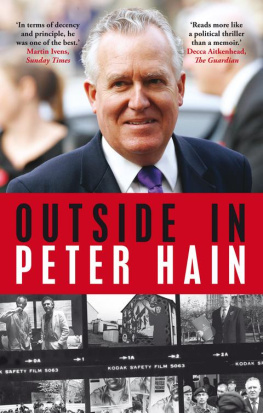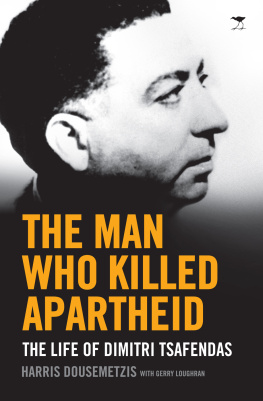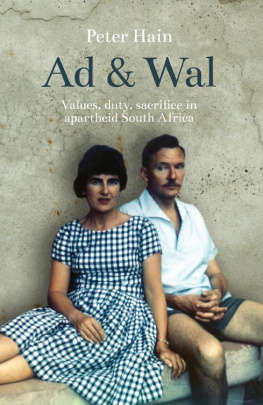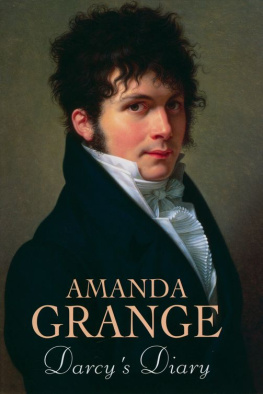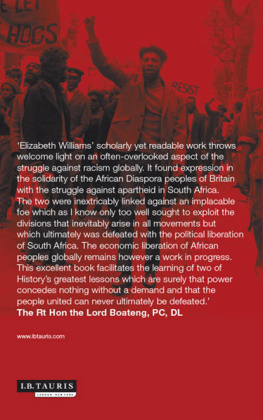T his is the story of an outsider turned insider: anti-apartheid militant to Cabinet Minister, serving twelve years in Labours government between May 1997 and May 2010.
I first found myself in the public eye in 1965 aged fifteen unexpectedly delivering the reading at the funeral of an anti-apartheid friend who had been hanged in Pretoria. Then in Britain, from the age of nineteen, political notoriety led to two extraordinary Old Bailey trials and being sent a letter bomb. Thirty years later I was sworn in as a Privy Counsellor by the Queen.
This is intended as a readable rather than erudite book, from struggle and protest in the 1960s and 1970s to negotiating the 2007 Northern Ireland settlement. Hopefully the reader will enjoy the fun as well as the sadness, the highs and the lows, the achievements and the setbacks of an unusual political life. My aim has also been a book that has durable interest, giving a sense of what the noble calling of politics can be like, and an insight into modern government based upon contemporaneous notes and dictated recordings an independent account of Labour in power from neither a Blairite nor a Brownite perspective.
I am very grateful to my wife Elizabeth Haywood for her dedicated, detailed and frank comments on the drafts, and to my parents Walter and Adelaine Hain for their observations, their courage in the anti-apartheid struggle and a lifetimes support. My wonderful sister Sally Hain painstakingly downloaded and transcribed the majority of recordings, with assistance from Cari Morgans and Matt Ward. My former government political advisers Phil Taylor and David Taylor commented expertly on the whole draft; Frank Baker, Sarah Lyons, Glynne Jones, Andre Odendaal, John Underwood and Phil Wyatt advised on parts. My agent Caroline Michel gave invaluable advice throughout, as at its conception did Gail Rebuck. My thanks to them all.
Hopefully, when they are old enough to read it, Harry, Seren, Holly and Tesni Hain will discover their unusual hinterland and perhaps also be inspired to make a difference as their Grandad always strove to do.
A h, Peter, return of the prodigal son! Nelson Mandela beamed, welcoming me to his Johannesburg home in February 2000.
Although on an official government visit, in a sense I was also being welcomed to my home to South Africa, the panoramic, sunshine country of my childhood, as the first ever British Minister for Africa to be born on that continent.
Ten years earlier, with Mandela still in prison I remained banned from entering South Africa a legacy of my anti-apartheid campaigning and I wasnt an MP then, still less a government minister. And ten years before that, I had never even considered being an MP: I was more steeped in extra-parliamentary protest and activism, the roots of which lay earlier in my South African-born parents brave anti-apartheid work when I was a boy.
As I settled onto his sitting room sofa for our discussions, my Foreign Office officials taking notes, all of us enjoying the thrill of being in the great mans presence, I was barely three years into a ministerial life in the Labour governments of Tony Blair and Gordon Brown; it would last a further nine years, seven as a member of the Cabinet.
Although we had met a number of times before, it was always special to be in his presence. A humble icon without an ounce of self-importance or arrogance , he had a unique aura: a sense of deep tranquillity and gentleness with everyone, yet also a worldly shrewdness that made you feel simultaneously at ease and in awe.
A twinkle in his eye, Mandela or Madiba (his clan name), used by those close to him courteously poked fun at the elegant British High Commissioner, Dame Maeve Fort, who had arranged the meeting; he was especially taken with English ladies the Queen included. But soon we moved on to talk about African policies, including his efforts as a mediator in the civil conflict in Burundi. Then, the meeting over, we walked out together in the bright summers day to a battery of television cameras, photographers and journalists gathered under the trees in his front garden, his hand resting on my shoulders, in part affectionately, in part because (now aged eighty-one) he found walking increasingly difficult.
Even ten years after his release from prison, and having meanwhile served as President for five years and then stepped down, Mandelas saintliness remained. I wanted to welcome my friend Peter Hain, he said, generous to a fault. He was a noted supporter of our freedom struggle and we thank him for that. Except for people like Peter, who was a leader of the anti-apartheid movement, I might not be standing here, a free man today, and our people would not be free.
It was a proud and almost magical moment for me, standing alongside the global giant who inspired such universal affection and admiration. He had been imprisoned on Robben Island under the old apartheid regime when, as a teenager in England, I was first denounced in South Africa as Public Enemy Number One. My crime was leading successful campaigns to stop all-white South African sports tours from 1969.
Now aged fifty, I was feted as a returning VIP, not just from the days of the freedom struggle, but representing the government of the old colonial power, the United Kingdom which in past decades I had vigorously attacked for its complicity in sustaining apartheid, denouncing as weasels its Africa Ministers.
But the journey to become a British Cabinet Minister started a long time before my years as a militant anti-apartheid protester. My transition from outsider to insider began as a son of Africa.
My life as a young boy in South Africa effectively ended with a close family friend being hanged by the apartheid government.
And the beginning of that end really began, I suppose, when the Security Police took my mother and father away in the middle of the night. Although I was aged eleven, unusual things had been happening to our family for a while, and my anti-apartheid parents had warned me that this might happen, making plans for my Gran (who lived nearby) and our black maid Eva Matjeka to look after us. I was their eldest child, used to taking responsibility and to looking after my younger brother Tom, then aged nine, and my two small sisters Jo-anne and Sally, aged six and four.
Still, when a hand shook me awake in our Pretoria home in May 1961, I couldnt help being frightened. As my eyes opened there was a familiar friend, Nan van Reenen, a kindly middle-aged lady, anxious in the gloom: Peter, your parents have been put in jail, she said gently, holding my hand.
I was drowsy, confused: what was happening? Where were they? They might never come back what on earth would I do? Then: mustnt panic, mustnt let my parents down, stay calm, carry on.
Nan told me how, with fellow Liberal Party activists Maritz van den Berg and her son Colyn, they had been putting up posters in support of the Stay-at-home protest called by Nelson Mandela when the Security Police turned up and detained them.
We checked to see that the others were still sleeping, she tucked up on our living room sofa, and I went back to bed and tried to close my eyes, worrying and wondering what lay ahead of us and how my even younger brother and sisters would react when they awoke.
Before she left in the morning Nan and I told them what had happened. The girls were wide eyed, and Tom very quiet. They did not cry but all of us knew that tears were being held back. Although I had no idea what was coming next, I felt I had to look after them somehow. I didnt think of myself as the young boy I was, just that I needed to do what had to be done.

